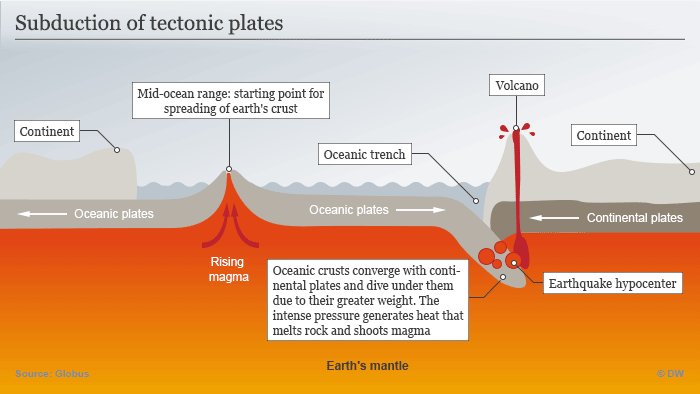CALL IT DEPARTMENT FOR EMPLOYERS
Trump Labor Department says it may actively defend meatpacking companies over workers in Covid-19 lawsuitsApril 29, 2020 By Jake Johnson, Common Dreams

“We have a president forcing hazardous meat plants to reopen, threatening workers’ health. We have a Labor Department siding with corporations over workers’ safety. Disgusting.”
The stated mission of the Occupational Safety and Health Administration is to protect workers, but the agency is signaling that it may actively defend meatpacking corporations against workplace safety lawsuits filed by employees who contract Covid-19 on the job if the companies show they made a “good faith” effort to comply with federal health guidelines.
“We all need to stop for a second to think about how crazy this is. OSHA is the agency that is supposed to protect people at work. Under this administration, it is now deciding it will defend bad employers in court because the employer ‘tried.'”
—Nate Ring, labor attorney
In a statement Tuesday shortly after President Donald Trump invoked the Defense Production Act (DPA) to keep meat processing plants open amid the coronavirus pandemic, Solicitor of Labor Kate O’Scannlain and OSHA principal deputy secretary Loren Sweatt urged meatpacking employers to comply with the agency’s non-binding safety guidelines.
But O’Scannlain and Sweatt said companies will have leeway to flout standards that they determine are not “feasible in the context of specific plants and circumstances,” provided that they “document why that is the case.”
“Where a meat, pork, or poultry processing employer operating pursuant to the president’s invocation of the DPA has demonstrated good faith attempts to comply with the Joint Meat Processing Guidance and is sued for alleged workplace exposures,” said O’Scannlain and Sweatt, “the Department of Labor will consider a request to participate in that litigation in support of the employer’s compliance program.”
We all need to stop for a second to think about how crazy this is. #OSHA is the agency that is supposed to protect people at work. Under this Administration, it is incredibly understaffed and is now deciding it will defend bad employers in court because the employer “tried.” https://t.co/72weCeuUuP— Nate Ring (@NVUnionLawyer) April 29, 2020
Jordan Barab, former deputy assistant secretary at OSHA, said Wednesday that the Labor Department’s statement constitutes “a free pass to meat and poultry processors.”
In an interview on MSNBC Tuesday night, former OSHA senior policy adviser Debbie Berkowitz slammed her former agency for abdicating its responsibility to safeguard workers.
“The agency has essentially abandoned its responsibility to ensure that employers keep workers safe from Covid-19.”
—Debbie Berkowitz, National Employment Law Project
“OSHA… has chosen—this is a choice—not to enforce any requirements in the meat industry to protect workers,” said Berkowitz, who is currently the director of the worker health and safety program at the National Employment Law Project. “The [meatpacking] industry looked at these recommendations—they’re voluntary—and in the end didn’t implement them.”
“There’s a real price to pay for this kind of, I would call it government malfeasance,” Berkowitz added.
Meatpacking plants across the country have become coronavirus hot spots in April. The United Food and Commercial Workers International Union (UFCW), the largest meatpacking union in the U.S., said in a statement Tuesday that at least 20 meatpacking workers have died of Covid-19 and more than 5,000 “have been hospitalized or are showing symptoms.”
“The reality is that these workers are putting their lives on the line every day to keep our country fed during this deadly outbreak,” said UFCW president Marc Perrone. “For the sake of all our families, we must prioritize the safety and security of these workers.”
Critics warned that Trump’s executive order mandating meatpacking plants remain open amid the pandemic could lead to another surge in Covid-19 infections and deaths among workers in the industry. According to the Washington Post, at least 20 meatpacking plants have closed in recent weeks due to coronavirus outbreaks at the facilities.
“We have a president forcing hazardous meat plants to reopen, threatening workers’ health,” Sen. Bernie Sanders (I-Vt.) tweeted Wednesday. We have a Labor Department siding with corporations over workers’ safety. Disgusting.”
“Maybe this is too ‘radical,'” Sanders added, “but we need a White House that protects public health during a pandemic.”
We have a president forcing hazardous meat plants to reopen, threatening workers’ health.
We have a Labor Department siding with corporations over workers’ safety.
Disgusting. Maybe this is too “radical,” but we need a White House that protects public health during a pandemic. https://t.co/g3DnKcETqf
— Bernie Sanders (@SenSanders) April 29, 2020
Between January and early April, OSHA was flooded with thousands of worker complaints accusing employers of violating federal coronavirus guidelines and endangering employee safety by failing to provide adequate protective equipment.
But the agency, overseen by Labor Secretary Eugene Scalia, has thus far refused to use its authority to force employers to comply with Covid-19 safety guidelines. OSHA is also massively understaffed with vacancies at 42% of its top career leadership positions, including such crucial spots as director of enforcement and director of whistleblower protection.
“OSHA’s mission to protect workers in the most dangerous jobs has been seriously compromised under the Trump administration,” Berkowitz said in a statement Tuesday. “The agency has essentially abandoned its responsibility to ensure that employers keep workers safe from Covid-19.”








.webp)




